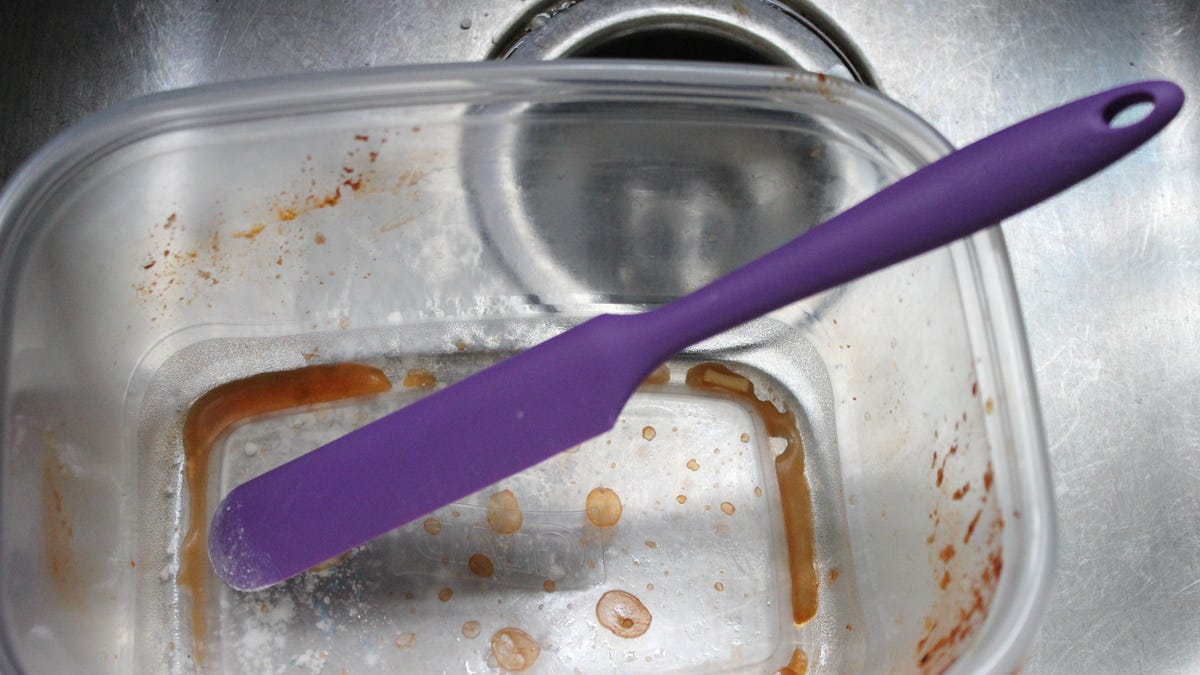Appliance Science: How dishwasher detergents digest food stains
Your dishwasher is, in many ways, a biological device, because the detergent you put into it uses enzymes -- the same enzymes that you find in your stomach. Appliance Science looks at the biology of dishwasher detergents.

You might not think about your dishwasher as being a biological device, but it really is: modern dishwasher detergents contain enzymes that are pretty much the same as the ones in your gut. So, in a way, your dishwasher digests the food stains on your dishes.
These two enzymes are called protease and amylase, and they digest protein and starch, respectively. They break down the food, chopping it into smaller chunks in the same way that the enzymes in your stomach digest food so it can be absorbed and metabolized. Your dishwasher doesn't absorb these nutrients, though: they are flushed away with the rest of the gunk from your dishes.
Firstly, a bit of basic biology. An enzyme is a biological catalyst that makes a chemical reaction happen faster. The starch and proteins in the food stains on your dishes will slowly break down over time, but an enzyme makes it happen much, much faster.
The really smart bit, is that an enzyme is not destroyed or altered in this reaction. Once it has broken down a bit of food, it will float away and start breaking down another bit of food. This means that you only need a very small amount of enzyme to break down a lot of food: each enzyme molecule can break down millions of food molecules.
Older detergents used chemicals like phosphates to break the food down, but these chemicals are also broken down in the process, so you need nearly as much phosphate as there are food stains. Plus, the unused phosphates and other chemicals are washed away and can damage the ecosystem of wherever they end up. Enzymes, however, break down themselves after a short time when dissolved in water, and are eaten themselves by common bacteria. That's why modern dishwasher detergents now contain enzymes rather than phosphates: they are less harmful to the environment and you don't need as much.
The way they work also means that you need less of them: typically, an enzyme dishwasher detergent is under 2 percent enzymes, against the 7 percent or more of phosphate formulas.
So where do these enzymes come from? Bacteria. The enzymes are made by companies like DuPontthat use bacteria such as Bacillus licheniformis as biological factories, brewing the enzymes in huge vats filled with bacteria that create the enzymes.
When this heady brew is ready, it is filtered to remove the enzyme, which is then stored in a way that preserves it (chemists call this process enzyme immobilization). It is then added to your dishwasher detergent in this inert state.
When you then put it in your dishwasher, the detergent is dissolved in water, and the enzyme leaps into action. As the warm water is sloshed and squirted around inside your dishwasher, the enzymes attack the stains, breaking the long chains of protein and starch down into smaller and smaller parts. Eventually, these chunks are small enough to be dissolved in water, and the surfactants and other chemicals in the detergent help to lift the grunge from your dishes and hold it in the water, which is flushed away.
Progress seldom comes without a price, and many people feel that enzyme dishwasher detergents are less effective than phosphate ones. However, the latest tests by Consumer Reports seem to indicate that this is no longer the case: most of their top-rated dishwasher detergents are enzyme-based types.
So, the next time you are loading your dishwasher, say thank you to the enzymes in the detergent that eat the bits of food you missed, and bring you clean dishes. And, if your dishwasher burps while running, don't be offended: it's just biology at work.



